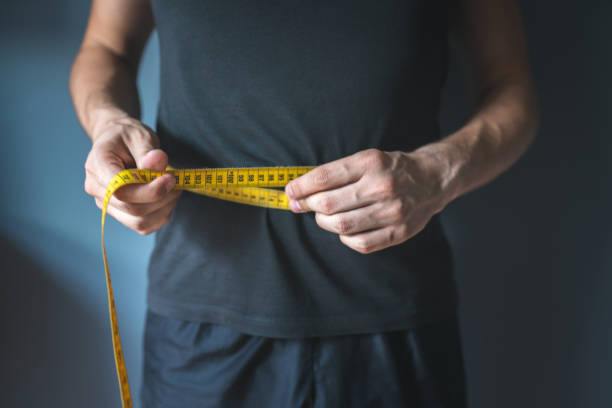
Testosterone Replacement Therapy (TRT) is commonly used to address low testosterone (Low T) in men, helping to restore energy, libido, muscle mass, and overall vitality. However, some men worry that TRT may cause weight gain.
At Tulsi Wellness Club, we believe in evidence-based health solutions and want to clear up the confusion. Let’s explore the relationship between TRT and weight changes.
Does TRT Lead to Weight Gain?
The answer depends on what kind of weight you’re gaining. TRT is not associated with fat gain when properly managed. Instead, it often leads to increased lean muscle mass, which can result in weight gain on the scale without an increase in body fat.
How TRT Affects Body Composition
Increases Lean Muscle Mass – Testosterone plays a key role in muscle growth and retention. TRT often leads to increased muscle mass, which may make the number on the scale go up but improves overall body composition.
Reduces Body Fat – Low testosterone is linked to higher body fat levels, especially around the midsection. TRT boosts metabolism, promotes fat loss, and enhances insulin sensitivity, leading to a leaner physique over time.
Improves Water Retention – Some men notice a slight increase in water retention, especially at the beginning of TRT. This can temporarily increase body weight, but it usually stabilizes after a few weeks.
Boosts Metabolism – Testosterone enhances caloric expenditure, helping the body burn more fat and build muscle simultaneously.
Why Do Some Men Experience Weight Gain on TRT?
While TRT itself doesn’t directly cause fat gain, there are some factors that may contribute to temporary weight changes:
1 Increased Appetite – Some men experience a boost in appetite when starting TRT due to increased metabolism and muscle-building demands. Without proper dietary adjustments, this can lead to overeating and fat gain.
2 Estrogen Conversion (Aromatization) – Some testosterone gets converted into estrogen through a process called aromatization. If estrogen levels get too high, it can lead to water retention and bloating, making it seem like weight gain.
3 Lack of Exercise – While TRT improves muscle growth, it’s not a substitute for exercise. A sedentary lifestyle can still lead to fat accumulation if calorie intake is excessive.
4 Initial Water Retention – In the first few weeks of TRT, water retention may temporarily increase weight, but this typically resolves as the body adjusts.
How to Prevent Unwanted Weight Gain on TRT
Focus on Strength Training – Since TRT enhances muscle growth, incorporating weightlifting or resistance training will help maximize lean gains while keeping fat levels low.
Monitor Caloric Intake – While TRT may increase appetite, focus on protein-rich, whole foods to support muscle growth without excess fat accumulation.
Balance Estrogen Levels – Work with a knowledgeable provider to monitor testosterone-to-estrogen ratios, ensuring you don’t experience unnecessary water retention or fat gain.
Stay Hydrated – Drinking plenty of water helps reduce bloating and supports optimal metabolism.
Optimize Sleep & Stress Management – Poor sleep and chronic stress can raise cortisol levels, which may contribute to fat retention. Aim for 7-9 hours of quality sleep per night.
Final Verdict: Does TRT Cause Weight Gain?
No, TRT does not cause fat gain. If anything, it promotes lean muscle development, fat loss, and an improved metabolism.
However, some men may see temporary weight increases due to muscle growth, water retention, or increased appetite. By maintaining a healthy diet and active lifestyle, TRT can help you achieve a leaner, stronger, and healthier physique.
At Tulsi Wellness Club, we specialize in personalized TRT programs designed to optimize your hormonal balance, body composition, and overall well-being. If you’re considering TRT or need guidance on weight management while on therapy, contact us today for expert support!
Dr. Devin Stone
Contact Me


